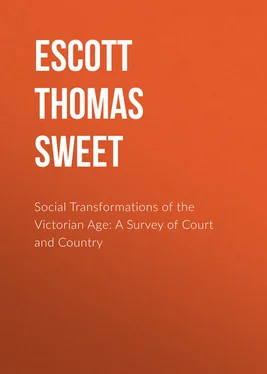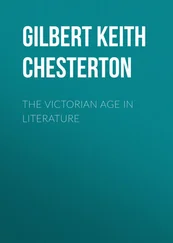1 ...8 9 10 12 13 14 ...19 The present writer has, however, some reason to question the accuracy of the tradition of a Rothschild secretly watching the great battle. The account that Baron Lionel’s friends generally gave is as follows. During the great Corsican’s usurpation of the First Magistrateship in the French State, the lawful possessor of the Throne, Louis XVIII. was living in retirement in Belgium. 15 15 Most of the time he was at Ghent. His stay there is known in French history as La cour de Gand .
The Rothschilds, on the early morrow of the decisive battle, sent a courier to the King’s villa near Ghent, to gather from the reception of the news by His Majesty how the fortune of the day had gone. The King’s sitting room was on the ground floor with windows looking on the garden. In that enclosure the Rothschild emissary took up his station, so that, himself unseen, he could observe what passed on the other side of the windows. Presently a rider, fresh from his horse, still booted, spurred, and mud splashed, entered the chamber, made a low obeisance to its dethroned occupant, who, on his part, graciously extended his fingers which the messenger gently touched with his lips. Hence the outside spectator inferred Napoleon’s defeat, and proceeded at once to his principals in London. As an English financier this is the Rothschild who popularized foreign stocks and loans in this country by causing the interest and dividends to be paid in London, instead of, as heretofore, abroad. Four years after Waterloo, he first identified himself closely with the English Government by undertaking a loan of twelve millions. His profit on the transaction was one hundred and fifty thousand pounds. With this sum he bought Gunnersbury, formerly the home of Amelia, aunt of George III., which had since passed into the hands of a private citizen named Copland. The Rothschilds naturally and honourably took their place among the lords of the soil in their adopted country. He who is now spoken of encountered, perhaps provoked, much opposition from rival financiers, and more than once measured swords with the Bank of England which had hesitated about technicalities of discount. Shortly after this the New Court potentate called at the Bank bringing with him a sum of twenty-one thousand pounds in £5 notes, 16 16 These anecdotes are given from Mr Reeves’ volume already mentioned. They are suggestive of incident if not uniformly accurate in fact. The correction of the Waterloo incident given above commended itself to some among Baron Lionel’s friends who would be likely to know.
each deposited in a separate bag. Seven hours were occupied in changing this paper into gold. For the time the general business of the establishment was arrested. The strategy succeeded completely. The next day it was announced that in future the Rothschild bills would be taken as the Banks’.
In the July of 1836 a pigeon fluttered in through the open window of the New Court counting house. The bird had travelled from Frankfort; it brought the news of the death in his native town of the great head of the firm. Many religious ceremonies of the Hebrew race have, during these last few years, been converted into great functions of modish society. The ceremonial series began when the body of the first great Rothschild known to England, in the presence of the whole Corps Diplomatique attached to the Court of St James’s, was committed to the earth in the East End cemetery of his race. With that event the latter day history of the Rothschilds begins. Henceforward the business was to be conducted by Nathaniel Mayer Rothschild’s four sons in England, together with their uncles abroad. Of these sons Nathaniel settled in France, Lionel, Nathan Mayer and Anthony managed the English firm. Under the régime of Baron Lionel Rothschild whom many now living remember well, the first great act of association with the English Government was in 1847 the Irish Famine Loan, supplemented as it was by munificent subscriptions for the relief of the distress which the failure of the potato crop had caused. Seven years later Baron Lionel carried out the sixteen millions loan for the English Government. The transaction for which the Lionel administration is best remembered by the present generation is the advance for the purchase of the Suez Canal shares in 1876. The announcement of that negotiation by the Prime Minister of the day in conjunction with his compatriots in the City, came as a surprise to the English people at large. It has, however, on the highest authority since transpired that when in 1874 Mr Disraeli took office, he had already decided upon acquiring for England a preponderating interest in the international waterway. Nor is it impertinent to assume that during the Sunday visits which the statesman, as Mr Disraeli and as Lord Beaconsfield, paid to the suburban home of Baron Lionel, this scheme may sometimes have been discussed. Four millions was the sum advanced by New Court, one hundred thousand pounds represented the total of the Rothschild 2½ per cent. profit.
By this time Baron Lionel had been in possession of a seat in the House of Commons some ten years, won though that seat had been only after a prolonged struggle. At the beginning of the century no Jew magistrate or sheriff existed. In 1837, Sir David Salomons became sheriff of London and Middlesex, but the true faith of a Christian test prevented him from serving. Eventually, to oblige the City, Lord Chancellor Campbell introduced a Bill removing this disability. Parliament, however, was still closed against the Jew. Ten years later Lionel Rothschild, with Lord John Russell, was elected M.P. for London. The Jewish Parliamentary Relief Bill, supported by Mr Disraeli as well as Mr Gladstone, passed the House of Commons, to be thrown out in the Lords. In 1850 another measure shared the same fate. The sixth decade of this century had come before the first Rothschild took his place on the green leather benches. Mr Disraeli’s last novel, Endymion , as rich as any of its predecessors in personal portraits, contains in the character of Mr Neuchatel, the banker, the most graphic pen and ink sketch of the financier now mentioned. In the grounds of Gunnersbury, statesmen of both parties, diplomatists from every Court, foreigners of every grade of distinction met each other. Here Mr Disraeli chatted amicably with Lord Palmerston, the turbulence of whose foreign policy he was fresh from denouncing in the House of Commons. Hither Louis Napoleon, when an exile in London, drove in his friend Count Alfred D’Orsay’s cabriolet. Here the veteran Lord Lyndhurst instructed in habits of English thought his aptest pupil, then a showy but still obscure politician soon to become the pillar of the Tory party. It was by Baron Lionel that the Rothschild hospitalities were begun on the scale on which they have since continued. First came the marriage of Baron Lionel’s eldest daughter, Leonora, to her relative, Alphonse Rothschild. Persigny, then French Ambassador in London, made a speech which the Paris Academy recognized as classical in its perfection. Mr Disraeli, always pre-eminently happy on these occasions, delighted host, hostess, and guests by a coruscation of glittering antitheses, and flashing epigrams in affectionate honour of the bride and bridegroom. The ex-Lord Chancellor, Lord Lyndhurst himself, in whose honour the Baroness Mayer had given a fête a few days earlier at Mentmore, said a few words so happy in their arrangement, so dignified in their cadence that they were subsequently set to candidates for the Newcastle medal at Eton to translate into Attic prose.
Not twenty years have passed since, on Baron Lionel’s death in 1879, the fortunes of the house have been controlled by the Lord Rothschild of to-day with his brothers Alfred and Leopold as his partners. The loans for the Hungarian, Brazilian, and Chilian Governments are only a portion of the New Court enterprises since 1879. In the eyes of England and of Europe, their most important undertaking has been in relation with Egypt. In 1885, at the moment that the Western powers were at diplomatic feud with each other about the land of the Pharoahs, Egypt itself drew more and more near to complete bankruptcy. The calamity was only averted by monthly advances from the Messrs Rothschild upon no legal security, but on the strength of a private note from the late Foreign Secretary, Lord Granville. This is the testimony of Sir Michael Hicks-Beach speaking as Chancellor of the Exchequer after he had succeeded Mr Gladstone in 1885. The nine millions loan issued in that year was, of course, highly successful for its negotiators. But this good fortune had been preceded by an anxious season of protracted risk encountered with unfailing public spirit.
Читать дальше












